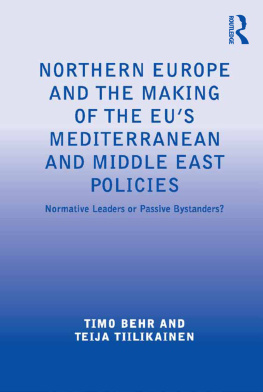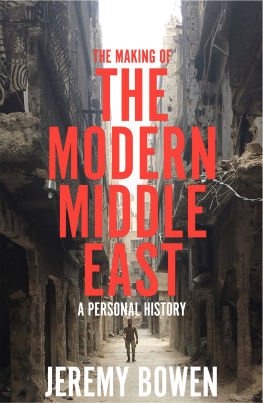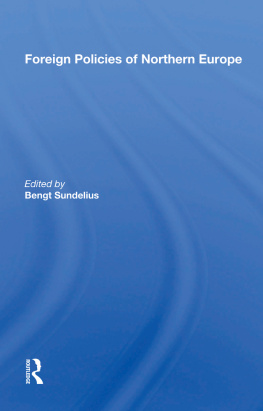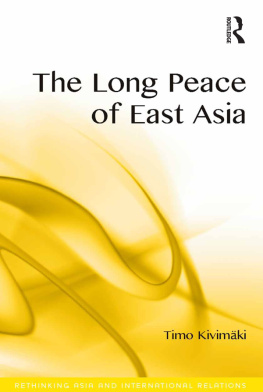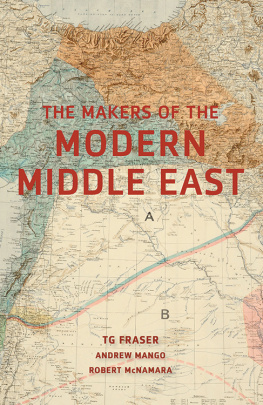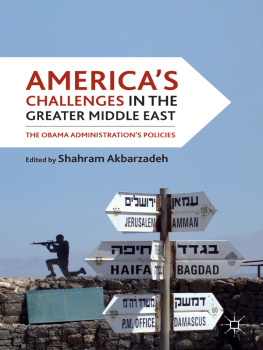NORTHERN EUROPE AND THE MAKING OF THE EUS MEDITERRANEAN AND MIDDLE EAST POLICIES
Northern Europe and the Making of the EUs Mediterranean and Middle East Policies
Normative Leaders or Passive Bystanders?
Edited by
TIMO BEHR and TEIJA TIILIKAINEN
both at The Finnish Institute of International Affairs
First published 2015 by Ashgate Publishing
Published 2016 by Routledge
2 Park Square, Milton Park, Abingdon, Oxon OX14 4RN
711 Third Avenue, New York, NY 10017, USA
Routledge is an imprint of the Taylor & Francis Group, an informa business
Copyright 2015 Timo Behr and Teija Tiilikainen
Timo Behr and Teija Tiilikainen have asserted their right under the Copyright, Designs and Patents Act, 1988, to be identified as the editors of this work.
All rights reserved. No part of this book may be reprinted or reproduced or utilised in any form or by any electronic, mechanical, or other means, now known or hereafter invented, including photocopying and recording, or in any information storage or retrieval system, without permission in writing from the publishers.
Notice:
Product or corporate names may be trademarks or registered trademarks, and are used only for identification and explanation without intent to infringe.
British Library Cataloguing in Publication Data
A catalogue record for this book is available from the British Library
The Library of Congress has cataloged the printed edition as follows:
The Library of Congress Cataloging-in-Publication Data has been applied for.
ISBN 9781472430434 (hbk)
ISBN 9781315598598 (ebk)
Contents
Timo Behr and Teija Tiilikainen
Teija Tiilikainen
Timo Behr
Timo Behr
Wolfgang Mhlberger
Jort Statema and Paul Aarts
Helle Malmvig
Elisabeth Johansson-Nogus
Teija Tiilikainen
Lucia Najlov
Patrycja Sasnal
Timo Behr and Teija Tiilikainen
List of Figures and Tables
Figures
Tables
Notes on Contributors
Paul Aarts is Senior Lecturer in International Relations in the Department of Political Science, University of Amsterdam. His research focuses on the politics of the Arab world, with a specific focus on the Gulf countries. He has published several edited volumes and numerous articles in different academic journals. His latest publication (with Carolien Roelants) is Saudi Arabia. Kingdom in Peril (Hurst, forthcoming).
Timo Behr worked as a senior research fellow at the Finnish Institute of International Affairs (FIIA) in Helsinki from 2009 to 2013, where he acted as a project leader for FIIAs research project on the Middle East and North Africa. He holds a PhD and an MA in International Relations from the Paul H. Nitze School of Advanced International Studies (SAIS) of the Johns Hopkins University in Washington, DC. He is the author of several articles and book chapters on Middle Eastern politics, the Arab Spring, EuroMediterranean relations and EU foreign policy. Timo currently works as an adviser to several governance entities in the Middle East.
Elisabeth Johansson-Nogus is Ramn y Cajal Researcher at the Institut Barcelona dEstudis Internacionals. She is also a member of the Observatory of European Foreign Policy (Spain). Her research interests focus on the EUs foreign policy in relation to neighbouring candidate and non-candidate countries like the Western Balkans, Turkey, Russia and the Arab world.
Helle Malmvig holds a PhD in Political Science and an MSc with Distinction from SOAS, University of London. She is Senior Researcher at the Danish Institute for International Studies at the Foreign Policy section. Her areas of expertise cover international politics and security in the Middle East, including the regional security balance and securitisations, regional conflicts and conflict resolution in Syria, IsraelPalestine, Lebanon, Iran and Egypt.
Wolfgang Mhlberger works as Senior Research Fellow EU-MENA at the Finnish Institute of International Affairs. He has held positions at the Austrian Defense Academy, with the Economist Intelligence Unit and the Austrian Ministry of Foreign Affairs. He studied Arabic and Islamic Studies as well as Business Administration and Economics in Vienna, and was a visiting researcher at the INSS in Tel Aviv and at NATOs Defense College in Rome. His research focuses on post-revolutionary Libya, the civil war in Syria, the IsraeliArab conflict and EU external relations in the southern Mediterranean.
Lucia Najlov, PhD, is Assistant Professor at the Department of West European Studies, Faculty of Social Science, Charles University in Prague. Her research focuses on the role of democracy and legitimacy in EUs external action (enlargement and neighbourhood policy chiefly), external perceptions of the European Union and EUTurkey relations.
Patrycja Sasnal is head of the Middle East and North Africa Project at the Polish Institute of International Affairs (PISM) in Warsaw. She lectures at the Institute of Advanced Studies in Warsaw and previously lectured at Jagiellonian University in Krakow, Poland, from which she holds an MA in International Relations and an MA in Arabic Language and Culture. She has written on US and EU policies in the Middle East, the challenges of transition in the Arab world, the ArabIsraeli conflict, modern Arab thought and Arab societies.
Jort Statema holds an MA in Political Science from the University of Amsterdam. In his previous work, he has focused on the dynamics of the Arab Spring, with a specific interest in why so many Arab autocrats remain(ed) in power. He is currently working in Yangon, Myanmar.
Teija Tiilikainen is Director of the Finnish Institute of International Affairs and Editor-in-Chief of Ulkopolitiikka (Finnish Journal of International Affairs). Previously, she has served as the director for the University of Helsinki Network for European Studies and as State Secretary in the Ministry for Foreign Affairs of Finland. She has published extensively on European integration, its main concepts, institutions and common foreign and security policy, as well as on Finlands foreign and security policy.
Preface
The idea for this book emerged in the corridors of the Finnish Institute of International Affairs in Helsinki. The proposal to study the not-so-usual suspects behind the EUs Mediterranean policy sounded like a challenging project well worth undertaking. Luckily, this inspiration was shared at the time by a group of enthusiastic scholars representing a good number of the northernmost EU countries, which meant that the first stage of the journey towards the volume at hand was already underway.
The group of authors came together only once, in a single productive meeting in Brussels in May 2012. After the meeting, we parted ways, but the two editors steered the process with a FinnishGerman assertiveness towards an end-product where the chapters would be structured in such a way as to make a coherent whole. At an appropriate moment, cooperation with the publisher began, to which end Ashgate has proved a reliable partner, swift in its decisions and actions throughout.

